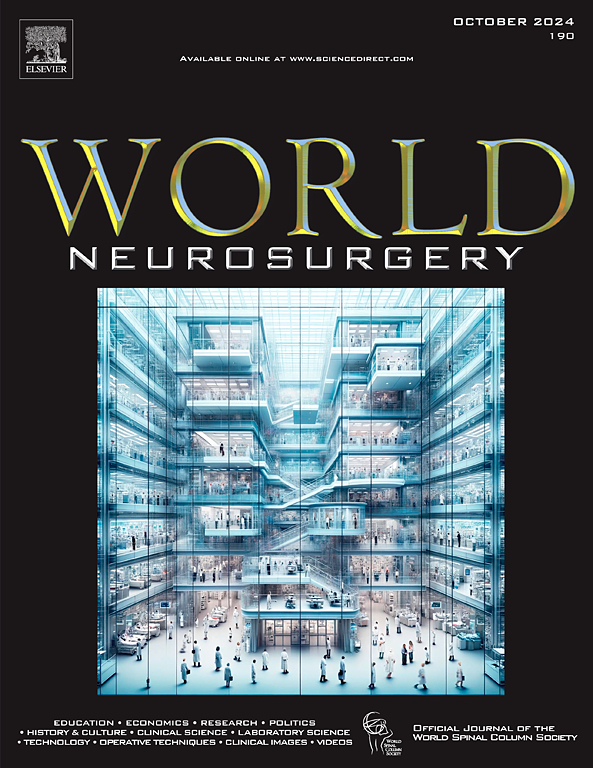Multiple Hippocampal Transections: Initial Clinical Experience with Modified Technique
IF 1.9
4区 医学
Q3 CLINICAL NEUROLOGY
引用次数: 0
Abstract
Objective
Standard resective treatment of mesial temporal lobe epilepsy (MTLE) includes anteromesial temporal resection or amygdalohippocampectomy. One potential risk of these surgeries, especially in patients with magnetic resonance imaging (MRI)-negative findings, is postoperative memory impairment. An alternative to resective procedures that aim to preserve the neuropsychological profile are multiple hippocampal transections (MHTs). The objective of transections is to interrupt the longitudinal pathways of the hippocampus to prevent the spread of epileptic seizures while preserving the memory circuits.
Previously performed MHT procedures were guided by questionable intraoperative electrocorticography. At our institution, we have developed and tested a modified technique to achieve complete MHTs.
Methods
Patients with pharmacoresistant unilaterally lateralized MTLE and MRI-negative findings with high risk of neuropsychologic deterioration were indicated for complete MHT. Comprehensive neuropsychological and epileptological evaluations and MRI follow-ups were conducted 1 year and 2 years postoperatively. The primary evaluated parameters were seizure reduction and significant changes in neuropsychological performance (± 1 SD).
Results
Complete MHTs were performed on 3 patients who completed 2-year follow-up. Two MHTs were performed on the right and 1 on the left side. Two patients are classified as Engel 1 and one patient as Engel 3. Two years after surgery, neuropsychologic evaluation did not show significant decrease in memory performance and performance in majority of cognitive tests. One-year MRI follow-up showed decrease of volume of hippocampus in all 3 patients.
Conclusions
This modified technique of MHT in patients with MTLE and MRI-negative findings led to seizure reduction while preserving their neuropsychologic performance.

求助全文
约1分钟内获得全文
求助全文
来源期刊

World neurosurgery
CLINICAL NEUROLOGY-SURGERY
CiteScore
3.90
自引率
15.00%
发文量
1765
审稿时长
47 days
期刊介绍:
World Neurosurgery has an open access mirror journal World Neurosurgery: X, sharing the same aims and scope, editorial team, submission system and rigorous peer review.
The journal''s mission is to:
-To provide a first-class international forum and a 2-way conduit for dialogue that is relevant to neurosurgeons and providers who care for neurosurgery patients. The categories of the exchanged information include clinical and basic science, as well as global information that provide social, political, educational, economic, cultural or societal insights and knowledge that are of significance and relevance to worldwide neurosurgery patient care.
-To act as a primary intellectual catalyst for the stimulation of creativity, the creation of new knowledge, and the enhancement of quality neurosurgical care worldwide.
-To provide a forum for communication that enriches the lives of all neurosurgeons and their colleagues; and, in so doing, enriches the lives of their patients.
Topics to be addressed in World Neurosurgery include: EDUCATION, ECONOMICS, RESEARCH, POLITICS, HISTORY, CULTURE, CLINICAL SCIENCE, LABORATORY SCIENCE, TECHNOLOGY, OPERATIVE TECHNIQUES, CLINICAL IMAGES, VIDEOS
 求助内容:
求助内容: 应助结果提醒方式:
应助结果提醒方式:


